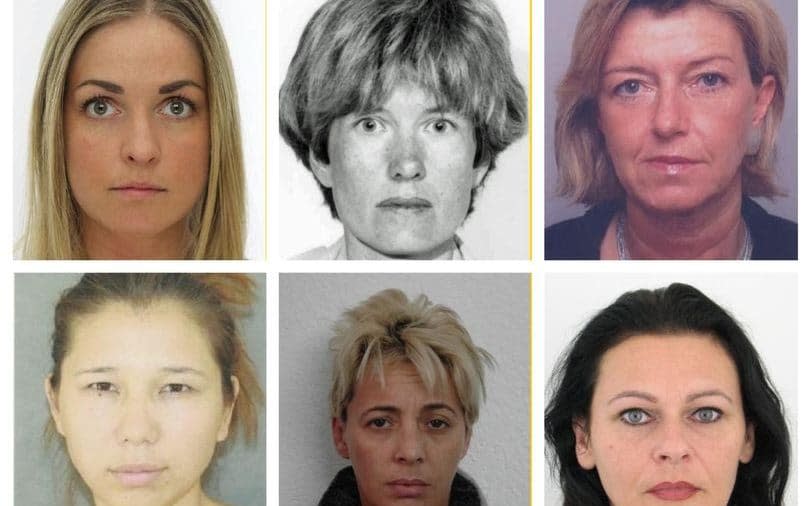Europol says women 'equally capable of crime' as men as it reveals most-wanted list

Europol has revealed the names of Europe's most-wanted fugitives - and 18 of the 21 criminals on the list are women, warning they are “equally capable” of committing serious crimes as men.
Called the "Crime has no gender" campaign, Europe's policing agency on Friday rolled out a new campaign to catch the continent's most wanted female criminals.
"People think that usually these crimes are not being committed by women, but they are and they are equally as serious as those committed by men," spokeswoman Tine Hollevoet said.
The wanted suspects face a range of charges including murder, and human and drug trafficking.
The interactive campaign first shows the suspects hidden behind spooky neon masks, before their faces are slowly revealed as viewers read the stories behind their crimes.
For instance, the Czech Republic is seeking information about Iveta Tancosova, who was sentenced to seven-and-a-half years in prison after a young girl was lured to England under the pretence she would work as a nurse.
France is looking for Jessica Edosomwan, a Nigerian citizen who escaped after police raided a prostitution ring in the Lyon region in late 2007 and arrested 26 people.
The ring exploited some 60 prostitutes who were lured to France with the promise of a better future and were smuggled there through Libya.
Once in France, the destitute women were subjected to voodoo "juju" rites and their families threatened, French police told AFP.
The case against the suspects are expected to start in Lyon on November 6 and Edosomwan is the only suspect still outstanding.
She is believed to be either in the Benelux countries, Italy or Germany, police said.
Dr Marian Duggan, an expert in gender and criminology at the University of Kent, told the BBC that Europol was right about there being a stereotype casting men as more likely than women to perpetrate serious and organised crime. But the stereotype existed because it was true, she said.
"Obviously all crimes can be committed of anybody of any gender," Dr Duggan said. "But while some women do commit serious crimes, they do so far less frequently than men."
Dr Duggan said gender stereotypes were often exploited by organised criminal groups when carrying out large-scale crimes.

 Yahoo News
Yahoo News 
